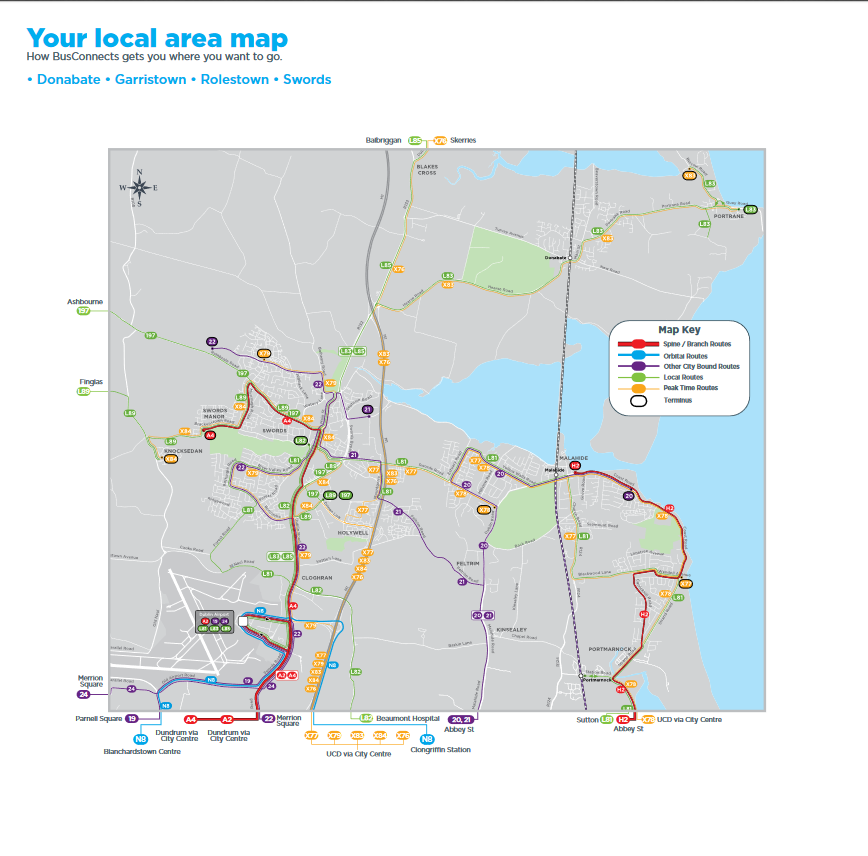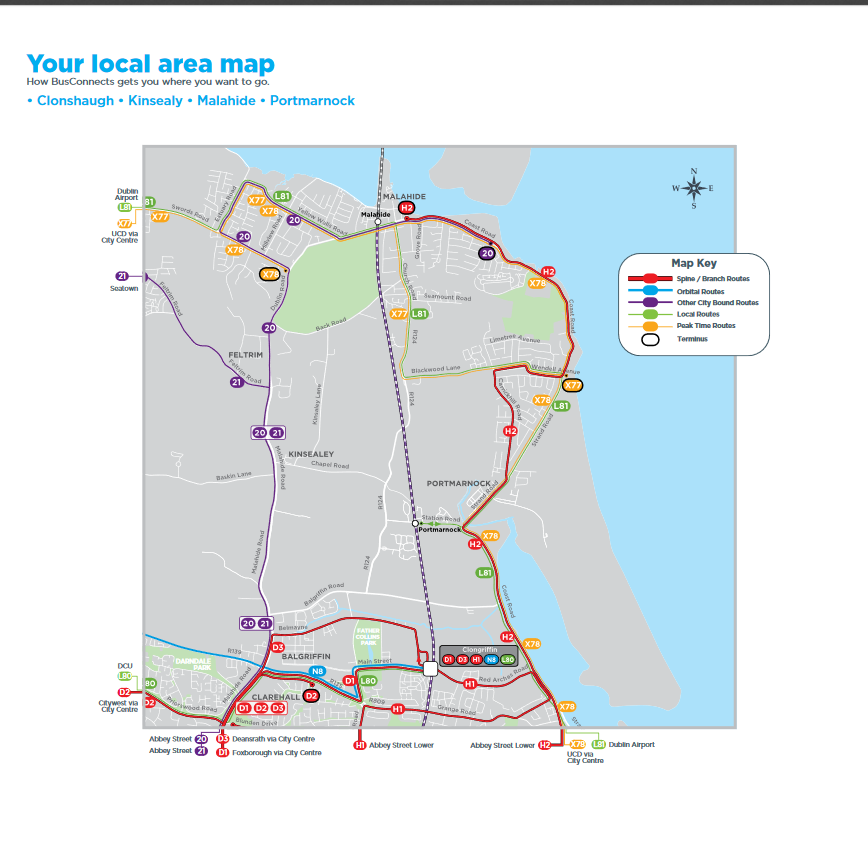|
The Minister for Housing, Local Government and Heritage Darragh O’Brien TD has confirmed today (28 September 2020) that the mortgage payment break already in place for local authority home loan borrowers will be extended for those continuing to face difficulties due to the Covid-19 emergency.
Local authority home loan borrowers could already avail of two payment breaks totalling up to six months and borrowers who take up a third payment break will be contacted by their local authority during the payment break to assess their financial situation and discuss options if necessary. Commenting the Minister said, “Due to the continuing economic uncertainty associated with COVID-19, many local authority home loan borrowers continue to face difficulties in paying their mortgage or have very real fears that they will face repayment problems in the future. “To help people in this situation, I am extending the mortgage payment break period by another three months, allowing people a total of nine months to get back on their feet. I am also extending the deadline for applying for a payment break until the end of 2020 to provide for borrowers who may yet suffer setbacks in the coming months. “The simplified application process in place allows borrowers in distress to access a payment break quickly. Any local authority home loan borrower facing difficulties due to COVID-19 are urged to contact their local authority as soon as possible, in particular, to access the application form and information that will be available on each local authority’s website. “Importantly, no additional costs to the original home loan balance arise for the borrower who avails of these measures, as borrowers are not charged interest for the period of the breaks,” concluded Minister O’Brien. Yesterday the National Transport Authority released their finalised BusConnects plans for North Dublin. I and my colleague Cllr. Eoghan O’Brien want to welcome the significant changes made to the BusConnects routes in Dublin Fingal.
We campaigned on your behalf for these changes, which address most of the the concerns that we along with residents across Kinsealy raised during the public consultation process. BusConnects Plan: In the initial draft BusConnects plan the 43 would have been replaced with a non-direct local route. Journeys to the City Centre on this route would have required a change of buses in Clarehall. City centre access via the Malahide Road will now be retained with the bus route 21, which runs at every 30 mins. The 102 was to be replaced and would have no longer served Kinsealy. However, it will now be replaced by the L81 local route that runs from Sutton Train Station, through Malahide, Mountgorry way and out to Dublin Airport. This service will run every 20 mins. The 142 service has been retained and has been renamed X77, this is still a peak time service. The 20 will replace the 42 and this is a regular service that serves parts of Kinsealy, Feltrim and the Malahide Road before going to the city centre. This will run every 30 mins. I and Cllr. Eoghan O'Brien want to commend everyone who attended our public meetings and engaged with the public consultation process. All relevant information about the new network is now available on www.busconnects.ie Kind Regards, Darragh & Eoghan Yesterday the National Transport Authority released their finalised BusConnects plans for North Dublin. I and my colleague Cllr Eoghan O’Brien want to welcome the significant changes made to the BusConnects routes in Dublin Fingal.
We campaigned on your behalf for these changes, which address most of the concerns that we along with residents across Malahide and Portmarnock raised during the public consultation process. BusConnects Plan: In the initial draft BusConnects plan the 142 would have been axed and the Seabury area of Malahide would have lost direct service to the city centre. City centre access via the Port Tunnel will now be retained with the bus route X77, which runs at peak times. The 20 will replace the 42 and this is a regular service that serves Seabury, Feltrim and the Malahide Road before going to the city centre. This will run every 30 mins. The L81 is a local route that will replace the 102 and begins at Sutton Train Station and serves the Portmarnock Train Station, Blackwood Lane, The Hill and Church Road, Malahide and Seabury out to the Airport. This route will run every 20 mins. This is a significant and positive change to the original plan. The X78 is a peak time service that will replace the 32x, it begins in Seabury serving Malahide up through Church Road, Portmarnock, into the City centre and out to UCD. We are delighted at the addition of the new H2 Spine/Branch route starting in Malahide serving Portmarnock via the Coast Road and Carrickhill Road and ending in Abbey St Lower, every 30 mins. I and Cllr Eoghan O’Brien want to commend everyone who attended our public meetings and engaged with the public consultation process. Kind Regards, Darragh & Eoghan All relevant information about the new network is now available on www.busconnects.ie Local Fianna Fáil Minister Darragh O’Brien TD has welcomed confirmation which he received from Minister for Education, Norma Foley that she has devolved the extension project for Skerries Community College to DDLETB for delivery.
The project consists of 26 general classrooms, 2 construction rooms, a science lab, other specialist rooms and relevant ancillary accommodation as well as facilities for Special Educational Needs. The next step is for DDELTB to enter into a service level agreement with the Department of Education and Skills which will allow them to appoint a design team to progress the project through design, planning and construction. Commenting Minister O’Brien said, “I am very glad of today’s announcement by Minister Foley. Having highlighted the capacity issues in Skerries Community College many times in Dáil Eireann I know that this announcement will be very welcome. “In January I attended a packed public meeting and listened as so many parents expressed their concerns of not being able to get a school place for their child. The school itself had a waiting list of students that it simply couldn’t offer places to. “It’s important now that work progress without delay. We know that Dublin-Fingal is the fastest growing and youngest constituency in the country so we need to prepare and provide sufficient places and a comfortable and spacious environment to accommodate each and every child. “I would like to commend the Principal, Board of Management, Parents Association, the teachers, parents and students who have fought for this,” concluded Minister O’Brien. Minister Darragh O’Brien working closely with local authorities to support communities & businesses22/9/2020
In the context of increasing COVID-19 positive cases in Dublin and indeed growing cases in a range of counties over the last number of days, Minister O’Brien met with the Chief Executives of all Dublin local authorities last Friday evening and, with his Department, has been working over the last number of days with local authorities to support communities and businesses, who continue to be affected by the pandemic.
During this difficult period, local authorities are reaching out to support those who need help:
“These are difficult and extraordinary times but I know the spirt of the Irish people will prevail. It is really important that we all adhere to the public health guidance and I urge everybody to protect themselves and the individuals that they come in contact with. As we enter a critical phase in terms of tackling the pandemic and as we head towards the Winter season, it really is imperative that we continue to keep on top of the virus,” concluded Minister O’Brien.
The programme is focused on housing estates which are not taken-in-charge by local authorities and do not have their water services connected to the public water services network but rely instead on infrastructure, often temporary in nature, which was provided by developers. Much of this infrastructure, generally consisting of small standalone wastewater treatment “package” plants were put in place in the 1990’s and early 2000’s. Following consideration by an Expert Panel, the Minister today approved funding allocations amounting to just under €3.36 million to 10 local authorities to resolve 26 housing estates providing water services to almost 950 homes. The focus of this first multi annual programme is on estates in towns and villages where the resolution is to connect their water services to the public networks. The programme will also support a number of pilot projects where connection is not feasible in the immediate future. These pilot projects, together with a major study to be under taken by Irish Water, will inform future policy on resolving sub-standard developer provided infrastructure in such areas. Speaking on the allocations Minister O’Brien said: “I am glad that this new multi-annual programme is up and running and that we are starting the process of helping the many families who are living in residential estates that are dependent on sub-standard developer provided wastewater or drinking water treatment plants for their water services. Many residents in these estates made a major financial commitment in buying their homes. “This first allocation under the multi-annual programme marks the first step in the taking-in-charge of these estates. The fact that the programme needed to be introduced demonstrates the importance of ensuring that public elements of housing developments such as the roads, open spaces, car parks, and service connections in their estate are completed to the satisfactory standard and maintained thereafter by the appropriate authority. “I have also asked my Department to re-engage with local authorities to see if there are additional estates which could be connected to the public network, and which could be included within the programme at an early date. I have also emphasised the need to speedily deliver the necessary works so estates can be taken-in-charge as soon as possible,” he concluded ENDS
Notes to Editors: Table of allocations below. Further information: Residential developments consisting of two or more dwellings that have been granted planning permission under the Planning and Development Act, 2000, as amended, are normally eligible for taking-in-charge. The taking-in-charge of residential estates by planning/local authorities i.e. the City and County Councils is provided for under section 180 of the Act. The planning authority is obliged to initiate taking-in-charge procedures where requested by either the developer of the estate or by the majority of owners of the dwellings in the estate. However, this is subject to the development being completed to the satisfaction of the authority and in accordance with the planning permission(s) and any attached conditions. Residential estates normally receive their water services – drinking water supply and disposal of wastewater – from the public (Irish Water) network. However, a subset of estates, that are not taken-in-charge, do not have their water services networks connected to the public (Irish Water) network. Instead these estates rely on ‘developer provided water services infrastructure’ for their water services. This infrastructure, provided by the developer of the estate, is more commonly called DPI. A survey, in Q4 2019, by the Department of Housing, Planning and Local Government indicated that there were nationally just under 570 estates depending on DPI for their water services. There are just over 10,000 homes that are dependent on DPI for their water services. DPI estates are predominantly small estates. Just over 50% of the DPI estates are in estates of 10 or less homes. Nearly 75% of homes is reached before the estates size exceed 20 houses. Nearly 95% are located in smaller rural settlements or rural townlands relying on small scale DPI treatment systems including septic tanks. A new multi-annual funding programme was introduced in 2019 to facilitate the progressive resolution in a sustainable manner of the DPI element of water services in estates to support the taking-in-charge of the estate. The focus of the new multi-annual programme is on the DPI component of the small subset of estates that are dependent on this form of water services infrastructure for the provision of the water services. Funding associated with the taking-in-charge of non DPI estates remains fully a matter for the planning/local authorities. The DPI infrastructure consists mostly of wastewater treatment facilities but a small number consist of drinking water services for the estate. They are privately owned facilities. The majority of DPI estates were constructed in the mid-1990s to the mid-2000s. They are a legacy issue from the two antagonistic economic upturn and downturn features of the Irish economy of the past three decades. By mid-2010 there was a significant backlog of estates awaiting taking-in-charge. The Department of Housing Planning and Local Government sought to stimulate the taking-in-charge process in 2016 through an initiative called the National Taking-in-charge Initiative (NTICI). In December 2018 the Department published a report – the National Taking in charge Initiative Report[1] - with findings and recommendations from the stimulation process. The report is available at this link https://www.housing.gov.ie/planning/other/taking-charge-housing-estates/national-taking-charge-initiative-report-2018 The NTICI report included a recommendation to introduce a multi-annual funding programme to progressively resolve DPI estates in a sustainable way. In July 2019 the Minister of Housing Planning and Local Government announced the commencement of a new investment programme – the Multi-Annual Developer Provided Water Services Infrastructure Resolution Programme 2019-2021. The purpose of the multi-annual programme is to progressively facilitate the resolution of DPI estates, in a sustainable manner, to support the taking-in-charge of these estates. Bids were also invited from local authorities at this time. The announcement today is the first wave, a small number, of projects for investment under the multi-annual programme. It will take a number of funding programmes to fully resolve DPI. |
NEWSArchives
November 2023
|


